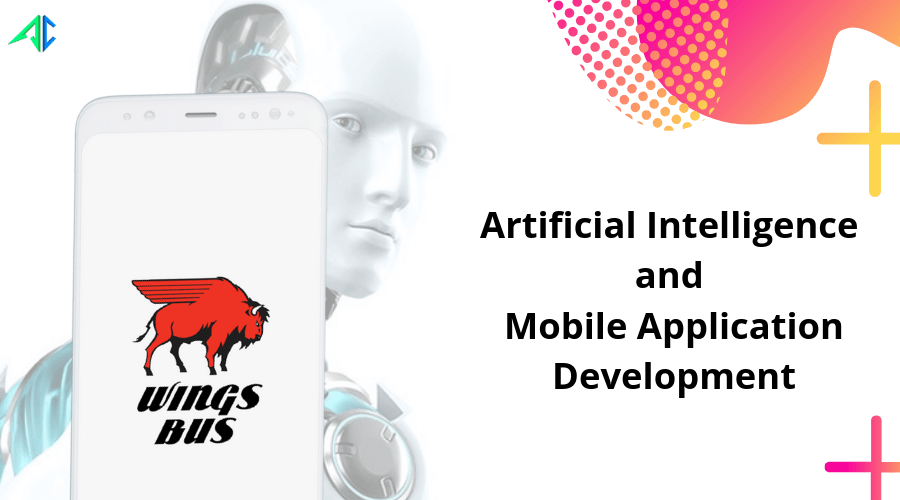Table of Contents
With the vast adoption of AI among multiple industries, developers are leveraging the technology to create smart and intelligent apps. Take a look at how Artificial Intelligence can be used in mobile apps and some popular use cases.
As an emerging technology, Artificial Intelligence (AI) has moved to the mainstream completely due to its growing usage in multiple industries. The app development industry is one of them.
AI has been the popular app development trend for the past many years and is expected to continue to be even in the future as well. In other terms, the future of Artificial Intelligence is bright in the app development industry.
AI has a vast potential to make mobile apps smarter and is perfect to be used for all kinds of mobile apps, be it gaming, personal or business apps.
We have already witnessed the popularity of Pokemon Go, which is one of the most popular use cases of artificial intelligence and augmented in mobile apps. It is the first mobile gaming app that used this technology and created a stir in the mobile game development industry.
This fostered the use of Artificial Intelligence in mobile apps. Today, the leading app development companies frequently integrate AI in the Android and iOS apps they develop, depending on customers’ requirements.
According to a study on Statista, the worldwide market size of AI was around $9.5 billion in 2018, which is expected to be increased by up to $118.6 billion by 2025.
What does Artificial Intelligence mean?
Artificial Intelligence is defined by different personalities in different ways. John McCarthy, who was the father of Artificial Intelligence, defined AI as:
“The science and engineering of making intelligent machines, especially intelligent computer programs.”
AI enables machines to behave, act, and perform like humans. It gives machines an ability to learn from new activities or experiences of humans and respond accordingly for every input. AI also enables machines to imitate human acts.
Features like speech recognition, planning, learning, and others are common for AI-powered mobile apps. Artificial Intelligence brought a great revolution through Apple’s Siri, Google Home, etc., and more, which are delivering a wonderful user experience.
How does Artificial Intelligence work?
Well, the question seems to be similar to how the human brain works. AI works on the machine learning principle to mimic human activities. It also uses previous data and learning experience to respond to the inputs.AI, with the use of available data and algorithms, forms a propensity model, which then starts making predictions.
You may also like to read: Why Wearable App Development is Going to be Game Changer for Healthcare?
What Artificial Intelligence is used for?
Artificial Intelligence has the potential to help many industries to grow and develop. The technology has been paving the way for the growth of many popular industries including healthcare, finance, transportation, education, etc.
Some very common examples of AI in the real-world are Siri and Google Home. Apart from these, some other known products that use AI include Google Now, Tesla, Netflix, Google Translate, Facebook, and others.
Almost every type of business nowadays witnessed the rise of Artificial Intelligence and they are keen to adopt the technology to get clear market insight, generating business leads, system automation, chat-based solutions, and lots more.
This prompts creative mobile app companies to use artificial intelligence in mobile apps to make them more advanced, with high-end functionalities and extraordinary features. It helps them cater to multiple requirements of businesses. We’re going to discuss these in detail.
Ways to Utilize Artificial Intelligence in App Development?
In this section, we’re going to describe how mobile developers make apps more competent, business-centric and tech-driven by leveraging artificial intelligence in apps development.
Personalized Content
Personalization is something that has more relevance in today’s business world. AI is capable of analyzing users’ behavior and based on this, it can easily predict what users are looking for. This helps businesses in catering to users with a new experience.
In other terms, the technology helps marketers present only those products to customers that attract them to buy. It helps businesses generate more sales and earn hefty profits.
Cortana is an example of AI-powered apps. It allows users to experience the smartest digital assistants and keep eyes on the important things from any location. The app helps users get reminders about their list, notes and also assists in making phone calls, sending texts, etc.
Voice Recognition Technology
Google initially introduced its voice-based search technology in 2012. The fact can’t be denied that speech recognition became successful in attracting people and today, it’s one of the most-frequently-used features for mobile apps.
According to ComScore, 50% of online searches will be performed through voice search by 2020. Whereas TechCrunch reveals, 1 in every 6 Americans has a smart speaker. This envisages that voice search is going to rule in the coming time.
Mobile app developers integrate virtual assistant technology to apps to enable speech recognition technology. It enables users to activate or deactivate various important features of the app using voice search through Siri, Cortana or other AI-powered machines.
Respond Customers Quickly
Sometimes, handling customer queries especially in bulk creates lots of difficulties for business representatives to handle properly. AI-powered apps have the potential to give the right solutions in this arena.
Google already adopted AI in its Inbox app, for creating customized messages based on messages users have received.
You need to either select one of the recommended answers or make it yourself, save and then you can use it when you get a similar inquiry. This enhances the productivity of your team and makes your entire operation smooth and efficient.
Image Recognition
AI developers integrate image recognition features within apps to identify objects, users, etc. These apps are capable of utilizing the IR system effectively, to discover an object in any image or video.
Automated Reasoning
It is considered to be highly complex, especially when compared to face recognition or speech recognition. It’s based on problem-solving principles, using various important algorithms.
It is the most important thing that enables computers to use logical reasoning to solve any kind of puzzle and thus helps users get the right solution in this arena.
Uber uses automated reasoning to find the right direction that includes both shortest routes and less traffic congestion, to reach the destination earlier.
Use Cases of Artificial Intelligence?
As we already discussed above, Siri, Alexa, Tesla, Cogito, Netflix, and others are some of the best Artificial Intelligence examples. Apart from these, we are going to tell how businesses are harnessing the hidden potential of AI technology.
Chatbots
Well, AI-powered chatbot now has become common for businesses. It’s able to handle customers’ queries in bulk and delivers a new experience. It’s not wrong to say that chatbot has revolutionized the way businesses today cater to customers. The use of chatbot in business is predicted to grow by leaps and bounds in the future as well.
Statista predicts that the market size of chatbot worldwide is expected to reach up to $2166.28 million by 2024, which was $370 million in 2017.
Search Product Easily
AI also witnessed its major acceptance in the e-commerce industry for having lots of potentials to grow in this industry. It assists customers in searching for the right product matching their needs and expectations by taking visual clues or also size, shape, etc., of the uploaded product.
Improve Workplace Communication
Artificial Intelligence improves workplace communication both internally and externally. And enables individual personalization for every professional, which saves time, improves focus and productivity. So, they can easily achieve their individual goals.
Human Resource Management
AI also revolutionized human resource management, which is an integral part of any organization. It removes tough and monotonous work of talent acquisition from the manager. As a software can do everything, be it evaluation, scanning, etc., of the applicants and make the entire process smooth.
Besides, it will also help human resources in several other ways including on-boarding, training, performance analysis and more.
Apart from these, the application of Artificial Intelligence is also in the healthcare industry, Cybersecurity, Logistics, and Supply Chain, Sports Betting Industry, Streamlined Manufacturing, Integrated Resorts, Retail, etc.
Conclusion
The above discussion has already unveiled the reasons behind the growing use of artificial intelligence in mobile apps. So, if you are considering business app development, it’s vital to consider the integration of AI to your app to avail of the above benefits.
We would love to hear your comments relating to the post. Got some other thoughts? Drop us words through our contact page.







